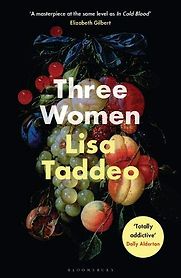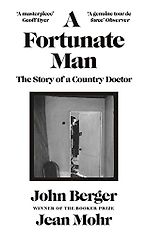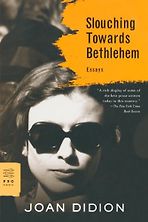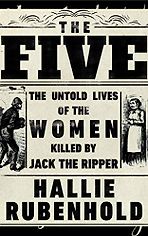Three Women
by Lisa Taddeo
The hotly anticipated debut from journalist Lisa Taddeo offers intimate portraits of three women living in contemporary America: Maggie, a young woman taking her former lover—and high school teacher—to court; Sloane, a successful restaurateur and, in private, a swinger; and Lina, a woman who feels trapped in a passionless marriage.
If nothing else, Three Women boasts an unparalleled commitment to its subject. In an effort to “convey vital truths about women and desire”, author Lisa Taddeo followed the three women whose life stories comprise the book—Maggie, Lina and Sloane—for nearly a decade.
She “spent thousands of hours” with them, accumulating everything from newspaper clippings to text message transcripts, even going so far as to move to several of their hometowns. Yet despite the dogged intensiveness this research suggests, the result reads less like reportage and more like a novel. We are immersed in the mental landscape of Maggie, who is groomed by her high-school English teacher at the age of 17; Lina, faced with a husband who does not want to touch her, who falls headfirst into an intense (and largely one-sided) affair with an old flame; and Sloane, whose husband most enjoys their bedroom when a third person is in it.
What sets Three Women apart as a daring work of creative nonfiction is that Taddeo is a master of the cutting one-liner. As Lina struggles to square her own insatiable desire against her lover Aidan’s noncommittal, shrugging tendencies, she “knows the literal translation of I don’t want to hurt you is I want to have sex with you but I don’t love you.” Ouch. And then there’s Sloane, on the moment a nightcap turns into the beginnings of a ménage à trois:
The individuals involved can rarely tell you the precise moment. That’s because it’s impossible. One would have to admit seeking something that feels unsavory, alien. A husband who desires to enter another body, to hold another breast. A wife who wants to see her husband want someone else, so that she may want him as much as she’d like to. A third person who is not frankly loved in the world, who enters a room as a cipher in a tank top.
“A cipher in a tank top”: Three Women is full of descriptions like these, and to any hungry reader—whether or not one has ever had a threesome, or indeed even wishes to—they’re catnip. We’re told that “table-setting a world made Sloane feel alive”, but “table-setting a world” is a fitting description of why this book so alive, too. It is hard to put down.
At first glance, it’s tempting to align Three Women with other hits of the last few years (Olivia Laing’s Crudo, Lena Dunham’s Girls). Each deals in the emotional interiority of women, sex and desire, and each seems to aspire to a certain universality, or at least claims to resonate with a larger group or even generation, despite being largely telegraphed through mostly white, mostly middle-class, and mostly conventionally attractive narrators. Several reviewers have critiqued Three Women in a similar vein: in the Telegraph, for instance, Lucy Scholes points out that “her three subjects are all white, under 40, and predominantly straight”; Taddeo’s claim to their stories’ “relatability … seems grossly myopic.” This seems to me a fair critique: if there’s anywhere the book falls down, it’s in the attempt to stretch the meaning of the message beyond its bounds, rather than allowing these quietly powerful stories to speak for themselves.
What makes Three Women worth reading is not just that these women are especially compelling (though they are), nor that their experiences are universal (they are not). Rather, it’s the way the prose balances on a knife’s edge between exquisite pleasure and traumatic pain, expressing each without blunting the effect of either. This is especially true of Maggie’s sections. The book is largely hers: nearly half (44.9%) of its pages are dedicated to her story, with Lina in second (30.3%) and Sloane trailing behind (about 24.8%). Teacher/student is, of course, a well-worn trope: asked by the Guardian recently about ‘the most overrated book’, Sarah Moss quipped, “The one where the white male American literature/history professor has a midlife crisis and sleeps with a student he despises, thus ending the marriage to the wife he despises … I think it’s called The Great American Novel.”
Here it is slightly different. The white male is not a history professor, but a high school teacher, and the student is underage. But the narrative challenge remains the same, and for Taddeo it’s a difficult one: how to fully commit to Maggie’s perspective and convey the all-consuming devotion she felt in the relationship without losing sight of its heinous inequity? In other words, how can she make the teacher at once lovable and monstrous, and Maggie knowing and naïve—without in one extreme aestheticizing abuse, or in another, appearing to judge her?
To me, a single passage in Three Women answers this question. For a moment of description leading up to it, the reader might be tricked into thinking this is not unlike any other affair; that is, through Maggie, we see an emotional reality largely made up of desire, sex, wanting, wondering, missing. Two people talk, then don’t talk; they hatch plans, meet, and then part; they eye and nervously paw around each other. They even dog-ear and annotate the same copy of a book (Twilight)—and here, Taddeo’s narrative voice works through:
There are people who will say that nothing that happened was against her will. That she was seventeen. In another few months it wouldn’t even be statutory rape. But imagine a girl, who has idealized a fairy-tale love story, reading notes effectively saying, Yes, yes, I am your vampire lover and you are my forbidden fruit. We are your favorite love story. For the rest of your life, nothing will taste like this.
Can you imagine.
These lines work like a swift, unexpected sucker punch to the gut, breaking the narrative trance and making any reader feel sick for slipping into it. (In a similar manner, we often realize the level of control Knodel wields over Maggie not because we are explicitly told, but through subtle descriptive details: the way she starts wearing sweatpants to school because he tells her they’re “easy access”, or the way her phone doesn’t light up on weekends because it’s his family time, or how he orders her to never text first, lest his wife see).
To some degree, all “personal relations”, as Janet Malcolm put it, involve “an uneasy truce between powerful solitary fantasy systems.” But the power dynamic here proves a particularly sinister and insidious enhancement of this norm. Shrouded in secrecy, their affair requires Maggie to be entirely dependent on the very little Knodel tells her about his feelings and motivations. Absent any knowledge of what a grown man’s marriage is like, and with no ability to conceive the vast gulf of not years, but decades, separating them, a young person with a hopeless crush can only invent feeble excuses for why he might stray: “Or it could mean, I am married and so everything that is sexual between us is clinically dead … We pay bills together and occasionally share a late-night talk show, if the mood strikes.” For the most part, she’s left with little choice but to read him in good faith. Until he’s found out, that is. But even when that happens, where can such a relationship—text-based, largely conducted in solitude, with no tether to the real world—go? Well, it’s refracted everywhere: “Maggie’s prison is the entire outside world”, Taddeo writes.
This is another of the book’s smart observations: the truth of this kind of experience can be not only paralyzing, but also utterly estranging. When as an adult Maggie goes to therapy and finally decides to press charges against Knodel, the defense’s lawyer says to her on the stand:
“I’m going to suggest to you that over time memories become what you wanted them to be. Not necessarily what it was.” What the fuck do you know about young women, Maggie thinks. We don’t remember what we want to remember. We remember what we can’t forget.
The disturbing contradictions that proved so confusing and vexing for Maggie to live with in the relationship have become, outside it, the very reasons why she isn’t believed. Why did she wait so long to come forward? Why didn’t she tell anyone at the time? Would an educator so beloved really force a student against her will? Didn’t she seduce him? Wasn’t she a voluntary participant at the time? Didn’t she want him, even then? Doesn’t she want him still? With no clear-cut, simple answers to these questions, the veracity of Maggie’s memory is questioned to the point of total erosion.
This book was much hyped in the pre-publication stage as a book about female desire. But to me, Three Women is not really about desire. It is about trying to live with the consequences of love. By seamlessly and nimbly moving in and out of Maggie’s reality, Taddeo captures the very paradox that makes grooming and other kinds of sexual abuse so difficult to talk about, let alone write about. From our perspective, the situation is obviously morally repugnant. We see a child, already vulnerable and largely powerless. We see an adult in a position of near-total emotional power, so absorbed in his own ethical quagmires that to suggest he has any thought or care for Maggie and her wellbeing would be absurd. But this is not what Maggie sees: she sees a man that she loves. She’s not totally unaware of the harsh facts of the situation; that is to say, she is not so flimsily drawn as to be lured into her teacher’s clutches because she’s particularly gullible or stupid. Rather, for her, these truths—that he is both her induction into sexual intimacy and love, and the man who groomed and abused her—exist in contradiction and exert a powerful hold. And Taddeo is the first writer I’ve encountered in a long time who can make the reader feel the abrasive pull of each and every rope in the tangled knot of that contradiction, as well as convey how long the burn can last.
 Stephanie Kelley, Literary Editor
Stephanie Kelley, Literary Editor
According to the Author: Q&A with Lisa Taddeo
Three women profiles three very different women from across the US. Might you tell us why you chose these particular women, and what the research process involved once you had found them?
One of my many hopes for the book was that it would be geographically and socioeconomically and racially variegated. I also wanted there to be a wide range of sexual orientations. I was also still looking for male subjects, in some capacity. One of the first drafts I turned into my editor had a wide range of subjects, satisfying most, if not all, of that range. But it was these three women whose stories were the most infinitely relatable and also the longest of the segments, because they had given me the most, told me the most. The way their communities reacted to them was the most indicative of the way society treats the marginalized, the disenfranchised. While the other smaller segments were interesting, they were not anywhere near as powerful as these three final subjects.
You have said that your book is about female desire, rather than sex. Could you expand on this?
Sex is the act. Desire is the much hotter (and sometimes much colder) emotion behind the act of the bodies.
In an interview, you discussed Gay Talese’s Thy Neighbour’s Wife as an early reference. Has American sexual culture changed a lot since then?
Yes, largely because of HIV and the internet. But actual desire, I don’t think that changes. The way we express it and worry about expressing it does.
What other books or articles influenced Three Women—and your writing more generally?
I admired the breadth of George Packer’s The Unwinding, the immersion of Gay Talese’s Thy Neighbor’s Wife, the distance of Joan Didion, the nearness of Elena Ferrante, the patience and non-judgmental nature of Tracy Kidder, the pierce of Janet Malcolm, the eye for absurdity of Renata Adler, the throttle of Tom Wolfe’s The Right Stuff, the incisive language of Joy Williams, the empathy and humility and love of Grace Paley.
One of the women is told: “You’re the woman, and you let this happen.” Another, who presses charges against a male teacher, finds that the jury does not believe her story. It doesn’t seem fair. Do you have the sense that attitudes towards women’s sexuality are changing, or are double standards as marked as they ever were?
Both. Depending on the part of the country, depending on the woman and the community. I think we are moving ever more wonderfully in the direction of equality but now that we are talking about we don’t want, I think it’s important to also talk about what we DO want.
Our most recommended books
-

Stasiland: Stories from Behind the Berlin Wall
by Anna Funder -

A Fortunate Man: The Story of a Country Doctor
by Jean Mohr & John Berger -

Slouching Towards Bethlehem
by Joan Didion -

The Five: The Untold Lives of the Women Killed by Jack the Ripper
by Hallie Rubenhold -
Solzhenitsyn
by Michael Scammell -

Selected Letters and Journals
by Lord Byron






Five Books review